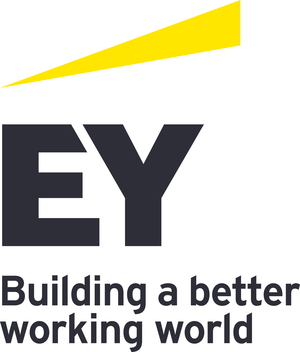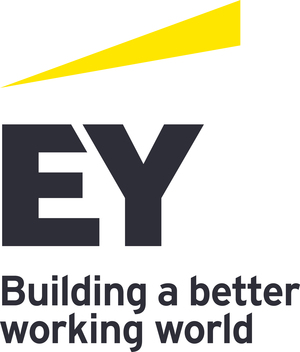
Power and utility workforce unprepared for a decarbonized, digitized energy future: EY survey
-- Nearly 90% of utility executives report having too few workers with the right skills to adopt digital technology.
-- More utility executives strongly agree they are responding more effectively to decarbonization (36%) than digitization (22%).
-- New technology, advances in renewable energy and the response to decarbonization rank as the top three positive drivers for utilities over the next three years.
NEW YORK, June 7, 2021 /PRNewswire/ -- Power and utility executives foresee seismic changes in the sector over the next few years with near universal (94%) agreement on the need for direct investment in technology and the workforce, according to the new EY Power & Utilities Digital Transformation and the Workforce Survey. Further, nearly 90% of executives report too few workers with the right skills is challenging their ability to adopt digital technologies, with many lacking a plan on how to proceed.
The EY survey of 159 power and utility executives across the globe provides unique insight as societal pressures mount to tackle the climate crisis and as the world transitions to a low-carbon energy system. The COVID-19 pandemic has seemingly accelerated the sector's need for large-scale transformation to decarbonize and enable electrified economies with more renewable and distributed energy — an evolution that must include cultivating a digitally savvy workforce.
"The low-carbon energy transition will create new roles that require different skills or reskilling, and a utility's agility to adapt and respond to the unknown will become even more critical," said Cyntressa Dickey, EY Global and Americas People Advisory Services — Energy & Resources Leader. "The number of disruptive threats continues to rise, the number of nontraditional competitors continues to grow, and technology is developing at the most rapid pace in history. Digital adoption and investment without an accompanying skilled workforce will not result in the desired benefits or returns."
New skills for a new energy world
The survey findings demonstrate the challenge faced: the digital technology landscape and the workforce skills required to support it are far beyond the core skills traditionally coveted by the sector. More than 9 of 10 executives said they will be changing their mix of energy sources (91%) and adapting to changing consumer expectations for a cleaner energy economy (93%) over the next few years. These changes will require new and enhanced capabilities for utilities. Furthermore, more than half (55%) ranked the adoption of new technologies as one of the three trends that will have the most positive impact on their organization.
Utility executives in the survey estimate that nearly 60% of the workforce requires reskilling or upskilling. Yet according to current plans, only 41% will be reskilled or upskilled, with an average education time of 7.5 months and $4,650 in training costs per reskilled employee. Despite the growing need, respondents report that 36% of the workforce will not be reskilled or upskilled, for a variety of reasons, including competing priorities, internal challenges and market pressures.
Closing the skill gaps
Even though failure to close the skills gap and effectively implement digital technologies poses a threat to their future, utility executives provide an uneven response to how they would overcome the challenge. For example, while 85% of executives said reskilling is essential to their success in the next three years, only 57% said they have a robust plan to reskill over the same period, dropping to 48% among respondents in the Americas.
Further complicating the challenge is that executives don't necessarily know where skill gaps exist and are experiencing issues with workforce retention. One-third said they cannot measure the gap between the skills they have and what they need. Additionally, two-thirds report having difficulty retaining those with in-demand skills in their workforce.
"Utilities can be the linchpin of a decarbonized economy, if they can effectively execute a plan for digital and develop the workforce to support it," said Ryan Levine, Principal, Ernst & Young LLP and EY US-East Energy People Advisory Services Leader. "However, failure could make them lose market share and become a prime target for disruption. Utilities will need to embrace a human-centered approach to develop a digital mindset and integrate technology across the enterprise to serve customers more efficiently."
About the survey
The survey was conducted to measure digital technology and skill adoption in the power and utilities sector. The survey respondents consisted of 159 power and utility executives globally representing renewables, electric, natural gas, water and other types of utility companies. Respondents hold a breadth of functional roles, including IT, HR, operations, strategy and digital. The survey was conducted between January 12 and February 8, 2021.
Study findings and illustrations can be found at www.ey.com/en_us/power-utilities/utility-digital-transformation-and-the-workforce.
EY | Building a better working world
EY exists to build a better working world, helping to create long-term value for clients, people and society and build trust in the capital markets.
Enabled by data and technology, diverse EY teams in over 150 countries provide trust through assurance and help clients grow, transform and operate.
Working across assurance, consulting, law, strategy, tax and transactions, EY teams ask better questions to find new answers for the complex issues facing our world today.
EY refers to the global organization, and may refer to one or more, of the member firms of Ernst & Young Global Limited, each of which is a separate legal entity. Ernst & Young Global Limited, a UK company limited by guarantee, does not provide services to clients. Information about how EY collects and uses personal data and a description of the rights individuals have under data protection legislation are available via ey.com/privacy. EY member firms do not practice law where prohibited by local laws. For more information about our organization, please visit ey.com.
This news release has been issued by Ernst & Young LLP, a member firm of EY serving clients in the US.
SOURCE EY








Share this article